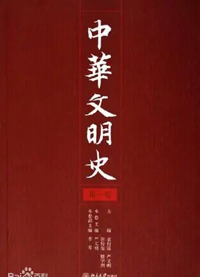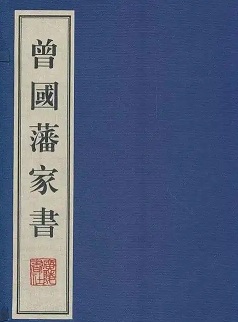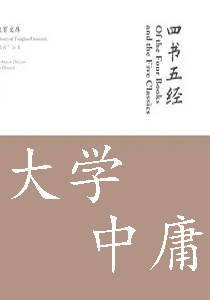Cosette in her shadow, like Marius in his, was all ready to take fire. Destiny, with its mysterious and fatal patience, slowly drew together these two beings, all charged and all languishing with the stormy electricity of passion, these two souls which were laden with love as two clouds are laden with lightning, and which were bound to overflow and mingle in a look like the clouds in a flash of fire.
The glance has been so much abused in love romances that it has finally fallen into disrepute. One hardly dares to say, nowadays, that two beings fell in love because they looked at each other. That is the way people do fall in love, nevertheless, and the only way. The rest is nothing, but the rest comes afterwards. Nothing is more real than these great shocks which two souls convey to each other by the exchange of that spark.
At that particular hour when Cosette unconsciously darted that glance which troubled Marius, Marius had no suspicion that he had also launched a look which disturbed Cosette.
He caused her the same good and the same evil.
She had been in the habit of seeing him for a long time, and she had scrutinized him as girls scrutinize and see, while looking elsewhere. Marius still considered Cosette ugly, when she had already begun to think Marius handsome. But as he paid no attention to her,the young man was nothing to her.
Still, she could not refrain from saying to herself that he had beautiful hair, beautiful eyes, handsome teeth, a charming tone of voice when she heard him conversing with his comrades, that he held himself badly when he walked, if you like, but with a grace that was all his own, that he did not appear to be at all stupid, that his whole person was noble, gentle, simple, proud, and that, in short, though he seemed to be poor, yet his air was fine.
On the day when their eyes met at last, and said to each other
those first, obscure, and ineffable things which the glance lisps, Cosette did not immediately understand. She returned thoughtfully to the house in the Rue de l'Ouest, where Jean Valjean, according to his custom, had come to spend six weeks. The next morning, on waking, she thought of that strange young man, so long indifferent and icy, who now seemed to pay attention to her, and it did not appear to her that this attention was the least in the world agreeable to her. She was, on the contrary, somewhat incensed at this handsome and disdainful individual. A substratum of war stirred within her.It struck her, and the idea caused her a wholly childish joy, that she was going to take her revenge at last.
Knowing that she was beautiful, she was thoroughly conscious, though in an indistinct fashion, that she possessed a weapon. Women play with their beauty as children do with a knife. They wound themselves.
The reader will recall Marius' hesitations, his palpitations, his terrors. He remained on his bench and did not approach. This vexed Cosette. One day, she said to Jean Valjean: "Father, let us stroll about a little in that direction." Seeing that Marius did not come to her, she went to him. In such cases, all women resemble Mahomet. And then, strange to say, the first symptom of true love in a young man is timidity; in a young girl it is boldness. This is surprising, and yet nothing is more simple. It is the two sexes tending to approach each other and assuming,each the other's qualities.
That day, Cosette's glance drove Marius beside himself, and Marius' glance set Cosette to trembling. Marius went away confident,and Cosette uneasy. From that day forth, they adored each other.
The first thing that Cosette felt was a confused and profound melancholy. It seemed to her that her soul had become black since the day before. She no longer recognized it. The whiteness of soul in young girls, which is composed of coldness and gayety, resembles snow. It melts in love, which is its sun.
Cosette did not know what love was. She had never heard the word uttered in its terrestrial sense. On the books of profane music which entered the convent, amour (love) was replaced by tambour (drum) or pandour. This created enigmas which exercised the imaginations of the big girls, such as: Ah, how delightful is the drum! or, Pity is not a pandour. But Cosette had left the convent too early to have occupied herself much with the "drum." Therefore, she did not know what name to give to what she now felt. Is any one the less ill because one does not know the name of one's malady?
She loved with all the more passion because she loved ignorantly. She did not know whether it was a good thing or a bad thing, useful or dangerous, eternal or temporary, allowable or prohibited; she loved. She would have been greatly astonished, had any one said to her: "You do not sleep? But that is forbidden! You do not eat? Why, that is very bad! You have oppressions and palpitations of the heart? That must not be! You blush and turn pale, when a certain being clad in black appears at the end of a certain green walk? But that is abominable!" She would not have understood, and she would have replied: "What fault is there of mine in a matter in which I have no power and of which I know nothing?"
It turned out that the love which presented itself was exactly suited to the state of her soul. It was a sort of admiration at a distance, a mute contemplation, the deification of a stranger. It was the apparition of youth to youth, the dream of nights become a reality yet remaining a dream, the longed-for phantom realized and made flesh at last, but having as yet, neither name, nor fault, nor spot, nor exigence, nor defect; in a word, the distant lover who lingered in the ideal, a chimaera with a form. Any nearer and more palpable meeting would have alarmed Cosette at this first stage, when she was still half immersed in the exaggerated mists of the cloister. She had all the fears of children and all the fears of nuns combined. The spirit of the convent, with which she had been permeated for the space of five years, was still in the process of slow evaporation from her person, and made everything tremble around her. In this situation he was not a lover, he was not even an admirer, he was a vision. She set herself to adoring Marius as something charming, luminous, and impossible.
As extreme innocence borders on extreme coquetry, she smiled at him with all frankness.
Every day, she looked forward to the hour for their walk with impatience, she found Marius there, she felt herself unspeakably happy,and thought in all sincerity that she was expressing her whole thought when she said to Jean Valjean:--
"What a delicious garden that Luxembourg is!"
Marius and Cosette were in the dark as to one another. They did not address each other, they did not salute each other, they did not know each other; they saw each other; and like stars of heaven which are separated by millions of leagues, they lived by gazing at each other.
It was thus that Cosette gradually became a woman and developed, beautiful and loving, with a consciousness of her beauty, and in ignorance of her love. She was a coquette to boot through her ignorance.
珂赛特和马吕斯都还在各自的掩蔽体里,燎原之火,一触即发。命运正以它那不可抗拒的神秘耐力慢慢推着他们两个去相互接近,这两个人,蓄足了爱情之电,随时都可引起一场狂风骤雨般的殊死战,两个充满了爱情的灵魂,正如两朵满载着霹雷的乌云,只待眼睛一望,或电光一闪,便将对面迎上去,进行一场混战。
人们在爱情小说里把眼睛的一望写得太滥了,以至于到后来大家对这问题都不大重视。我们现在几乎不怎么敢说两个人相爱是因为他们彼此望了一眼。可是人们相爱确是那样的,也只能是那样的。其余的一切只是其余的一切,并且那还是后来的事。再没有什么比两个灵魂在交换这一星星之火时给予对方的强烈震动更真实的了。
在珂赛特无意中向马吕斯一望使他心神不定的那一时刻,马吕斯同样没料到他也有这样一望使珂赛特心神不定。
他害她苦恼,也使她感到快乐。
从许久以前起,她便在看他,研究他,和其他的姑娘一样,她尽管在看在研究,眼睛却望着别处。在马吕斯还觉得珂赛特丑的时候,珂赛特已觉得马吕斯美了。但是,由于他一点也不注意她,这青年人在她眼里也就是无所谓的了。
但是她不能阻止自己对自己说,他的头发美,眼睛美,牙齿美,当她听到他和他的同学们谈话时,她也觉得他说话的声音动人,他走路的姿态不好看,如果一定要这么说的话,但是他有他的风度,他那模样一点也不傻,他整个人是高尚、温存、朴素、自负的,样子穷,但是好样儿的。
到了那天,他们的视线交会在一起了,终于突然互相传送了那种隐讳不宣、语言不能表达而顾盼可以细谈的一些最初的东西,起初,珂赛特并没有懂。她若有所思地回到了西街的那所房子里,当时冉阿让正按照他的习惯在过他那六个星期。她第二天醒来时,想起了这个不认识的青年,他素来是冷冰冰、漠不关心的,现在似乎在注意她了,这种注意她却全不称心。她对这个架子十足的美少年,心里有点生气。一种备战的意图在她的心里起伏。她仿佛觉得,并且感到一种具有强烈孩子气的快乐,她总得报复一下子。
知道了自己美,她便十分自信棗虽然看不大清楚棗她有了一件武器。妇女们玩弄她们的美,正如孩子们玩弄他们的刀。她们是自讨苦吃。
我们还记得马吕斯的迟疑,他的冲动,他的恐惧。他老待在他的长凳上,不近前来。这使珂赛特又气又恼。一天,她对冉阿让说:“我们到那边去走走吧,爹。”看见马吕斯绝不到她这边来,她便到他那边去。在这方面,每个女人都是和穆罕默德一样的①。并且,说也奇怪,真正爱情的最初症状,在青年男子方面是胆怯,在青年女子方面却是胆大。这似乎不可解,其实很简单。这是两性试图彼此接近而相互采纳对方性格的结果。
①据说穆罕默德说过:“山不过来,我就到山那边去。”
那天,珂赛特的一望使马吕斯发疯,而马吕斯的一望使珂赛特发抖。马吕斯满怀信心地走了,珂赛特的心却是七上八下的。自那一天起,他们相爱了。
珂赛特的最初感受是一种慌乱而沉重的愁苦。她觉得她的灵魂一天比一天变得更黑了。她已不再认识它了。姑娘们的灵魂的白洁是由冷静和轻松愉快构成的,象雪,它遇到爱情便融化,爱情是它的太阳。
珂赛特还不知道爱情是什么。她从来没有听过别人从尘世的意义用这个词。在修院采用的世俗音乐教材里,amour(爱情)是用tambour(鼓)或pandour(强盗)代替的。这就成了锻炼那些大姑娘想象力的闷葫芦,例如:“啊!鼓多美哟!”或者:“怜悯心并不是强盗!”但是,珂赛特离开修院时,年纪还太小,不曾为“鼓”烦心。因此她不知道对她目前的感受应给以什么名称。难道人不知道一种病的名称便不害那种病?
她越不知道爱是什么,越是爱得深。她不知道这是好事还是坏事,是有益的还是有害的,是必要的还是送命的,是长远的还是暂时的,是允许的还是禁止的,她只是在爱。她一定会莫名其妙,假使有人对她这样说:“您睡不好吗?不准这样!您吃不下东西吗?太不成话!您感到吐不出气心跳吗?不应当这样!您看见一个黑衣人出现在某条小路尽头的绿荫里,您的脸便会红一阵,白一阵?这真是卑鄙!”她一定听不懂,她也许会回答说:“对某件事我既无能为力也一点不知道,那又怎么会有我的过错呢?”
她所遇到的爱又恰是一种最能适合她当时心情的爱。那是一种远距离的崇拜,一种无言的仰慕,一个陌生人的神化。那是青春对青春的启示,已成好事而又止于梦境的梦境,向往已久、终于实现并有了血肉的幽灵,但还没有名称,也没有罪过,没有缺点,没有要求,没有错误,一句话,是一个可望而不可及、停留在理想境界中的情人,一种有了形象的幻想。在这发轫时期,珂赛特还半浸在修院那种萦回着的烟雾里,任何更实际、更密切的接触都会使她感到唐突。她有着孩子的种种顾虑和修女的种种顾虑。她在修院里待了五年,她脑子里的修院精神仍在慢慢地从她体内散发出来,使她感到自己周围的一切都是岌岌可危的。在这种情况下,她所要的不是一个情人,甚至也还不是一个密友,而是一种幻影。她开始把马吕斯当作一种动人的、光明灿烂的、不可能的东西来崇拜。
天真的极端和爱俏的极端是相连的,她向他微笑,毫无意图。
她每天焦急地等待着散步的钟点,她遇见马吕斯,感到说不出的快乐,当她对冉阿让这样说时,自以为确实表达了自己的全部思想:“这卢森堡公园真是个美妙的地方!”
马吕斯和珂赛特之间彼此还是一片漆黑。他们彼此还没交谈,不打招呼,不相识,他们彼此能看得见,正如天空中相隔十万八千里的星星那样,靠着彼此对看来生存。
珂赛特就这样渐渐成长为妇人的,貌美,多情,知道自己美而不知道多情是怎么回事。她特别爱俏,由于幼稚无知。






